'They would kick me all over the street' - Windrush generation's early struggles in Sheffield
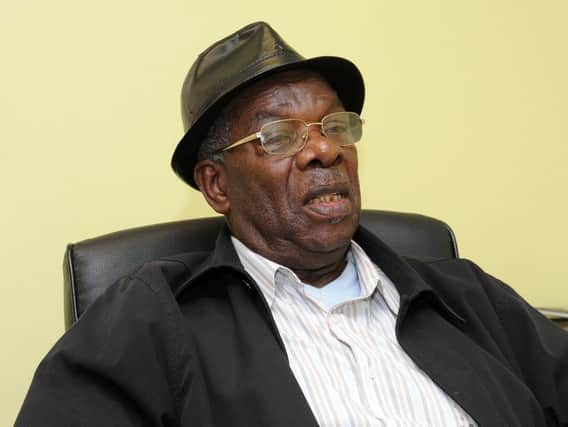

The reality was very different from the picture they had been painted, explain members of the Windrush generation who arrived in Sheffield during the late 50s and early 60s.
Looking for work and a place to live, they were confronted with signs saying 'no blacks', subjected to brutal beatings and found the low wages fell well short of the riches they expected.
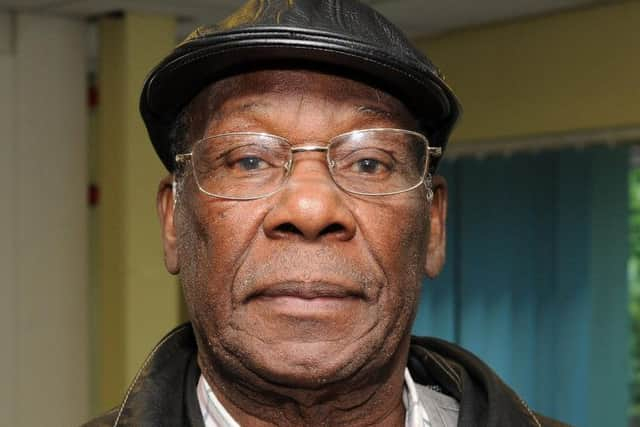

Advertisement
Hide AdAdvertisement
Hide AdThen there was the culture shock of the climate and geography, with the windswept moors surrounding Sheffield and the smog clogging the inner city air a far cry from the tropical paradise they had left behind.
"For a lot of us who came here, Britain was a trap," says Charles Noel, who arrived in the city in August 1961, aged 22, from Trinidad.
"Many of us were earning less than we had back home and having to pay for everything which we could get for free before, like milk and fruit.
"The impression we got was that you could come here, work for a few years and then head back with a lot of savings.
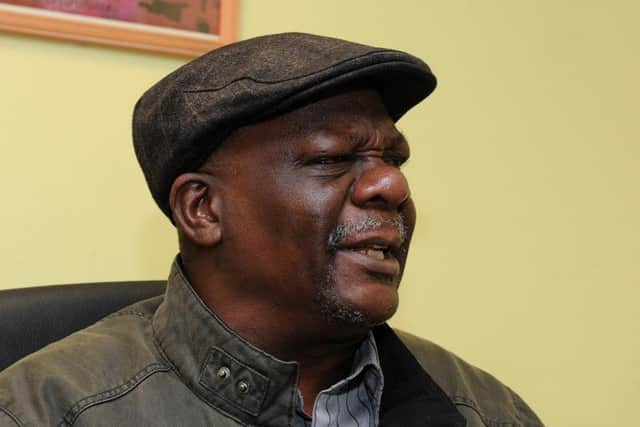

Advertisement
Hide AdAdvertisement
Hide Ad"But people found they were earning so little that even after saving for several years, they couldn't even pay for their passage home."
After a short spell as a shop assistant, Charles, now aged 78 and living in Grimesthorpe, became a bus driver - a job he would do for the rest of his working life.
It was one of numerous roles he explains many native Britons didn't fancy so were instead filled by the new wave of migrants, from bricklayers to hospital porters, nurses and steelworkers.
The Windrush generation, named after the ship which landed on these shores in 1948 carrying nearly 500 passengers from the Caribbean, may not be commemorated with a slew of statues or faces on stamps and banknotes.
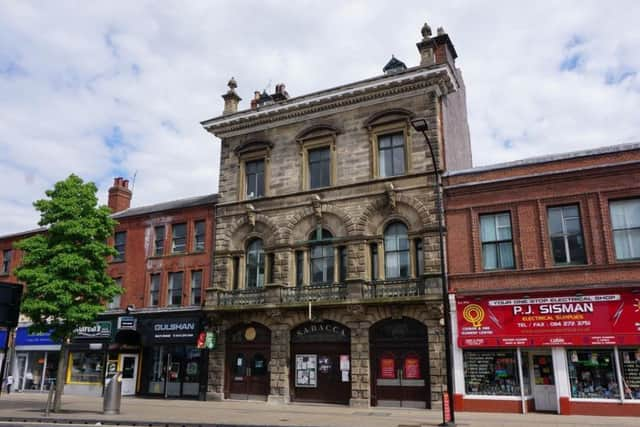

Advertisement
Hide AdAdvertisement
Hide AdBut their contribution to Sheffield, and the UK as a whole, is etched into the fabric of the city: they helped construct its buildings, kept it moving and tended to its ill and injured.
October is Black History Month, which is held to celebrate the culture and achievements of black people throughout the ages and to ensure no one forgets their ongoing struggle for equal rights.
SADACCA (Sheffield and District African Caribbean Community Association) is staging more than a dozen events at its home on the Wicker to mark the month, from poetry performances and film screenings to a domino tournament pitting Sheffield against Oldham.
Clinton McKoy, who is coordinating the celebrations there, believes it is vital to ensure young black people know about their heritage.
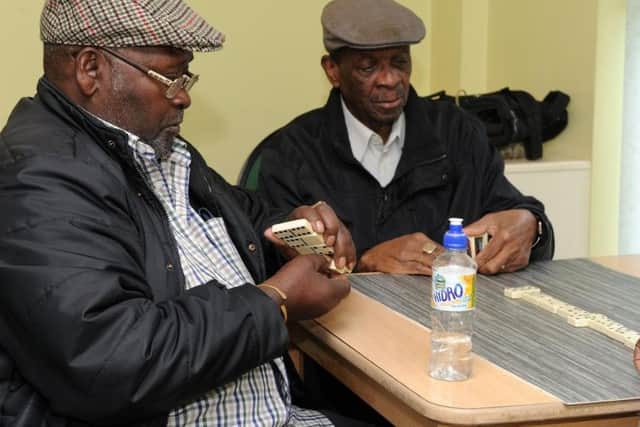

Advertisement
Hide AdAdvertisement
Hide Ad"I was nine when I came here in 1962 and I knew very little about black history and culture then," he says over the clack of dominoes which punctuates life at the community centre.
"I remember someone at school saying to me 'what's a black person ever invented?' I couldn't come up with an answer and that triggered something in me.
"Black history didn't start when the Europeans came and invaded our countries, took what they wanted and forced us into slavery.
"There's a very rich past which we have to promote to our young people because it gives them a sense of being and pride."
Advertisement
Hide AdAdvertisement
Hide AdFor Black History Month, SADACCA has created a 'Hall of Fame' in its foyer heralding the success of black people past and present, many of whom never gained the recognition their achievements deserved.
Clinton today has none of the difficulty his nine-year-old self did reeling off examples of black contributions to society.


From their role in Egyptian civilisation to the example of Mary Seacole, who nursed injured soldiers during the Crimean War but whose fame today pales in comparison to that of Florence Nightingale, the list trips off his tongue.
He is determined to ensure young black people appreciate their more recent ancestors' crusade for equality, too, and are aware much work lies ahead.
Advertisement
Hide AdAdvertisement
Hide Ad"With all the struggles we've gone through I'm worried some of them think there's nothing left for them to do," he says.
"There's still a lot of racism in society, it's just often much more covert these days."
But Black History Month is not just for black people, says Clinton, who wants everyone to be able to enjoy and learn about black culture.
"The world's a very large place and we're all human beings with cultural differences. The more we learn about each other's cultures, the better we can get along," he explains.
'No blacks, no Irish'
Advertisement
Hide AdAdvertisement
Hide AdWhen Charles Noel arrived in 1961 in Sheffield, where his brother and cousins already lived, he was horrified by the prejudice he faced.
"If you went for a walk, you would see signs everywhere saying 'no blacks, no Irish'," said the 78-year-old, who now lives in Grimesthorpe.
"Many people couldn't even find somewhere to rent because nobody wanted them, but I was lucky that I could share my brother's room."
He quickly found work at a shop on Division Street, where the 22-year-old spent nine weeks before joining British Rail and later Sheffield Transport as a bus driver.
Advertisement
Hide AdAdvertisement
Hide AdBut life in England was very different from back in Trinidad, where his family owned a small farm and he had plenty of land to roam and his fill of fruit.
"Sheffield's a nice clean city now but it was a black hole when I arrived. You had to be careful wearing a white shirt because of all the smog," he says.
"But the biggest shock for me was that I was earning less here than I had in Trinidad, which wasn't what I'd been led to expect.
"And I missed the freedom of having all that land to roam and being almost self-sufficient."
Advertisement
Hide AdAdvertisement
Hide AdMany of his friends who came to England from the Caribbean have returned after retiring. But for Charles, who has two children and three grandchildren, the family ties here are too strong.
He is proud of the contribution he and other Caribbean immigrants have made to Sheffield, where he says they did the jobs native Britons didn't want to do at the time, often working in hospitals or the transport sector.
And although racism is not as bad as when he arrived, he says it remains very much alive.
"My youngest lass who's now a catering manager moved to London for work because she couldn't get that job here due to the prejudice she faced," he explains.
'They never touched me again'
Advertisement
Hide AdAdvertisement
Hide AdJust going to buy a loaf of bread was a terrifying ordeal for Henry McPherson when he came to Sheffield from Jamaica in 1960, because he knew the local Teddy Boys would be waiting to deliver a brutal beating.
"They would kick me all over the street, until there was blood everywhere," says the retired builder.
"When I called the police I don't know what they said to them but it only got worse so I realised I had to look after myself.
"I was working for British Steel at the time so I found a large spring, which must have been about three feet long, and covered it with electric tape.
Advertisement
Hide AdAdvertisement
Hide Ad"One evening five of the Teddy Boys tried to beat me up so I lashed one of them with the spring and he dropped straight to the ground. The others didn't stick around, and from that day on they never touched me again."
The Teddy Boys may be long gone but Henry, who is now aged 86 and living in Pitsmoor, says he still encounters racism.
"Some places you can't go and have a drink or a meal without people calling you all kinds of names, and there are places they won't even serve you. Things are getting better but only slowly," he says.
BLACK HISTORY MONTH AT SADACCA (What's still to come)
Monday, October 16 - Friday, October 27, 10am-5pm Monday-Friday: Men and Women of Colour Exhibition
Wednesday, October 18, 7pm-9.30pm: African Dance Showcase
Thursday, October 19, 7pm-9pm: Film night
Friday, October 20, 7pm-9pm: Poetry in Motion
Advertisement
Hide AdAdvertisement
Hide AdSaturday, October 21, 10am-late: Various events including an appearance by Leo Muhammad, from 90s comedy The Real McCoy, from 6pm-9pm, and the Big People's Linkup from 10pm till late
Wednesday, October 25, 6.30pm-8pm: Presentation about slavery in Mauritius
Thursday, October 26, 7.30pm: Jazz night special
Friday, October 27, 7pm: Film night
Sunday, October 29, 6pm: United Gospel Concert
* all events at SADACCA on the Wicker